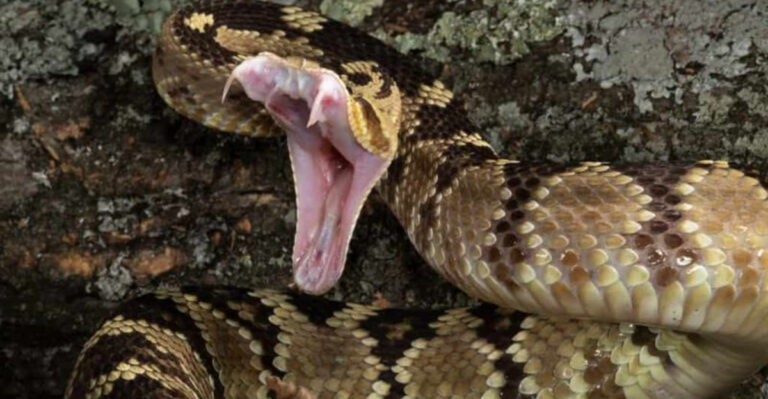17 Misconceptions About Pet Birds That Owners Need To Stop Believing
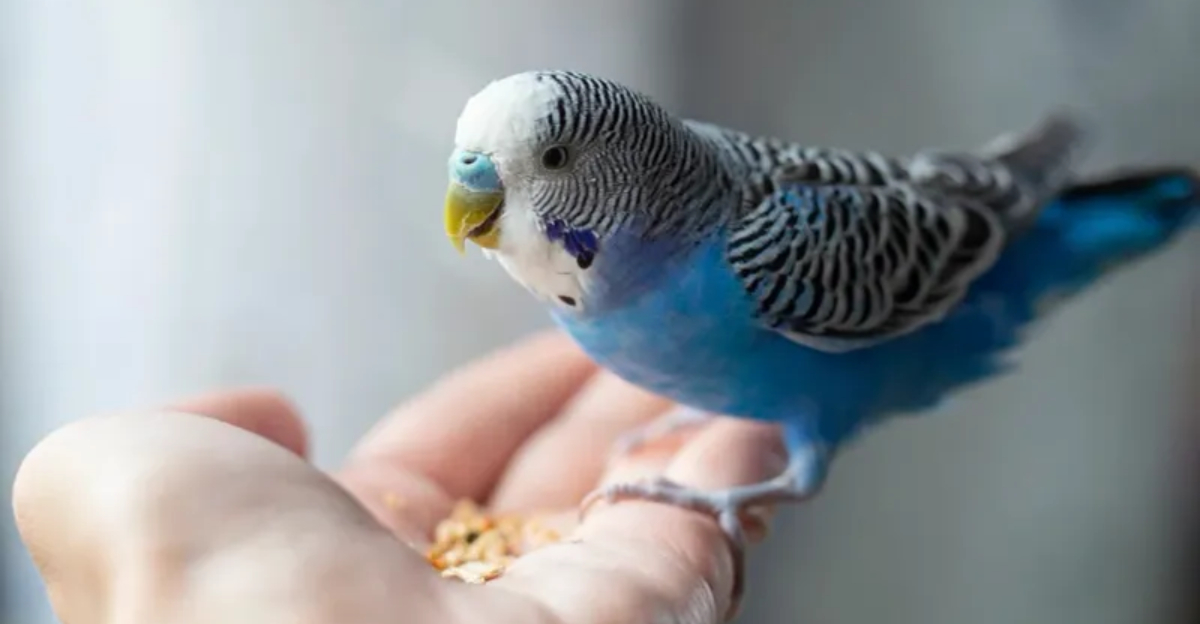
Birds are often misunderstood creatures. Surrounded by myths and misconceptions, pet birds have suffered from misunderstandings that affect their well-being and our relationship with them.
Unlock the truth behind these feathered friends and discover what makes them truly unique.
1. Birds Require Limited Space
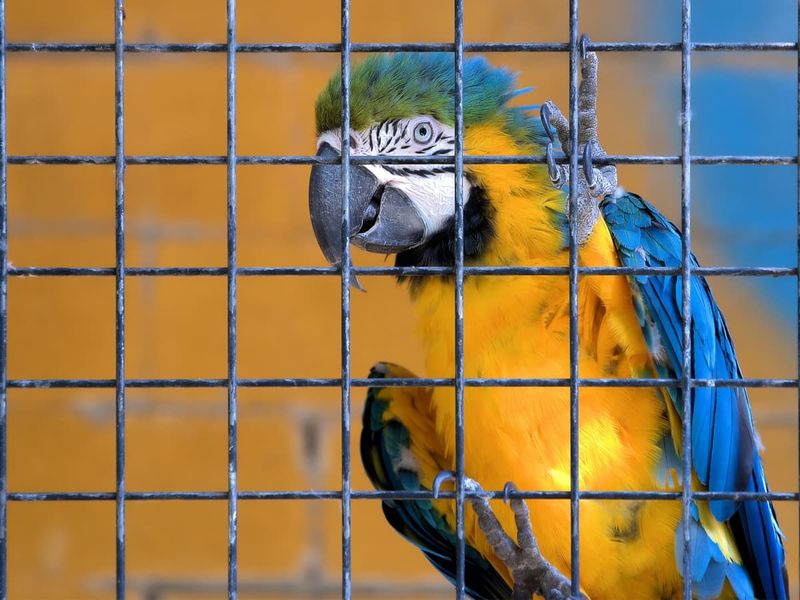
Imagine a bird confined to a tiny cage, unable to stretch its wings. Sadly, some owners believe that birds need minimal space. In reality, birds thrive in environments where they can fly and explore.
A spacious cage or aviary, complete with toys and perches, fosters a happier, healthier bird. Birds are naturally active creatures that need room to move.
Providing adequate space allows them to exhibit their natural behaviors and keeps them stimulated.
2. Birds Can Be Tamed Overnight
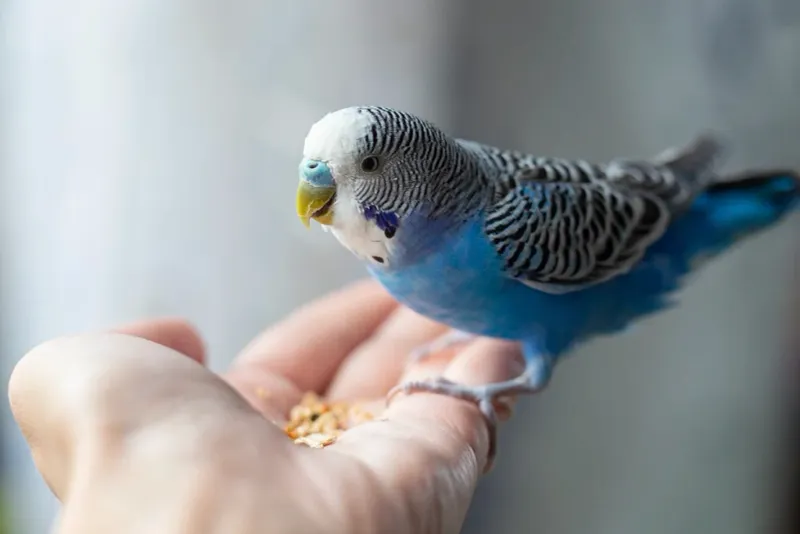
Tammy thought her new parakeet would bond instantly, but taming birds requires patience. Unlike pets like dogs, birds don’t form trust quickly.
Building a bond involves time and consistent interaction. Using treats and gentle communication helps in forming a connection.
Every bird is unique, and rushing the process can lead to stress. A slow, understanding approach rewards both the bird and owner.
3. Birds Are Solely Decorative
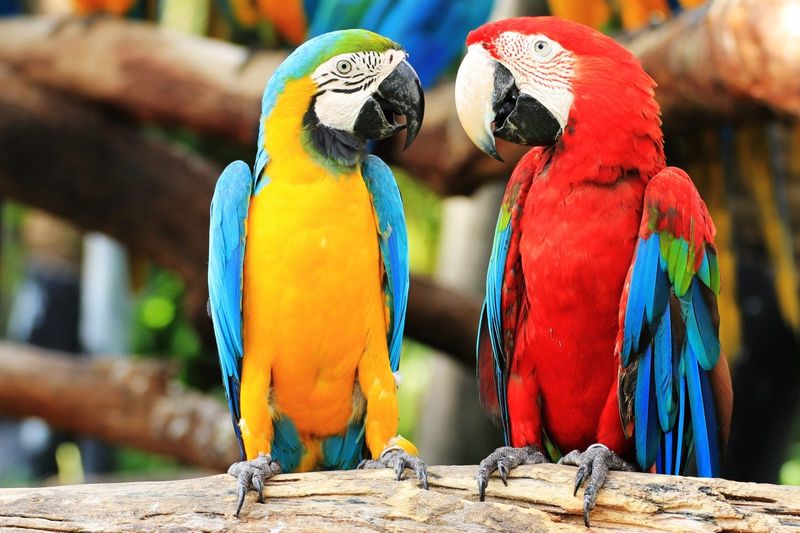
Engaging with birds through games and training enriches their lives and strengthens the human-bird bond.
Birds like the African Grey are known for their intelligence and social abilities. Interaction is vital to prevent boredom and behavioral issues.
Treat birds as active companions and enjoy their personalities. Birds offer more than mere decoration; they provide lively companionship and joy.
4. Birds Are Low-Maintenance Pets
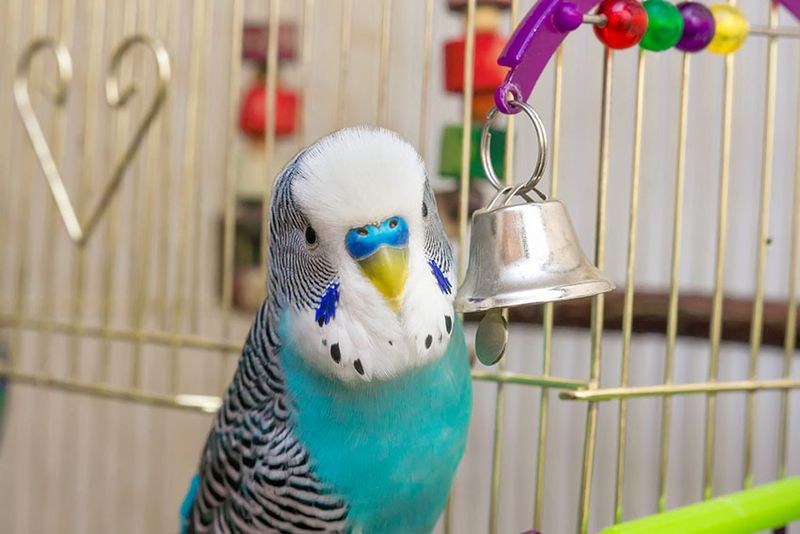
Think birds are just feathery decorations? Wrong! They crave attention, mental stimulation, and physical care. Despite their size, birds require significant time and energy from their owners.
They need spacious cages, a variety of toys, and proper nutrition to thrive.
Just like a toddler, a bird’s curiosity knows no bounds. Regular interaction and playtime are essential to keep them healthy and happy.
So, if you think a bird is an easy pet, think again. It’s a delightful commitment filled with daily responsibilities.
5. Birds Can Eat Only Seeds
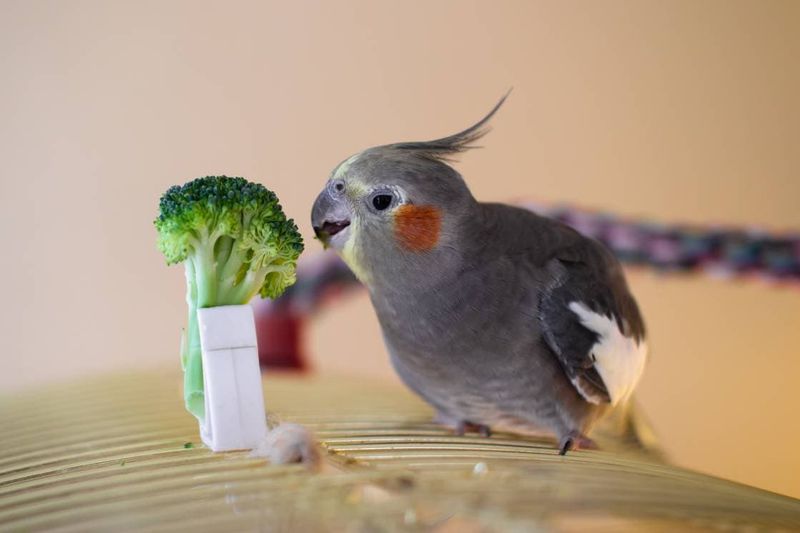
Seeds might seem like a bird’s snack of choice, but relying solely on them is a nutritional no-no. Birds need a balanced diet that includes fruits, vegetables, and specially formulated pellets.
Think of it like dining at a buffet – variety is key. A diet rich in different nutrients ensures vibrant feathers and a long life.
Feeding only seeds can lead to deficiencies and health problems. So, mix it up and offer your feathered friend a banquet of healthy options!
6. Birds Don’t Need Social Interaction
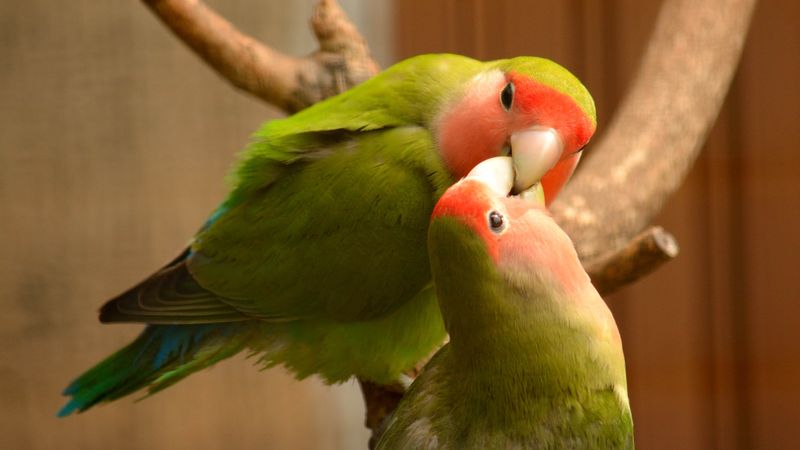
Ever consider that birds might just be the social butterflies of the animal kingdom?
They thrive on interaction and companionship. Whether it’s with humans or other birds, social connection is vital for their mental health.
Loneliness can lead to depression and behavioral issues like feather plucking. Spending quality time with them enriches their lives, building a bond that’s rewarding for both.
So, treat your bird like the social creature it is, and watch it flourish!
7. Birds Are Noisy All The Time
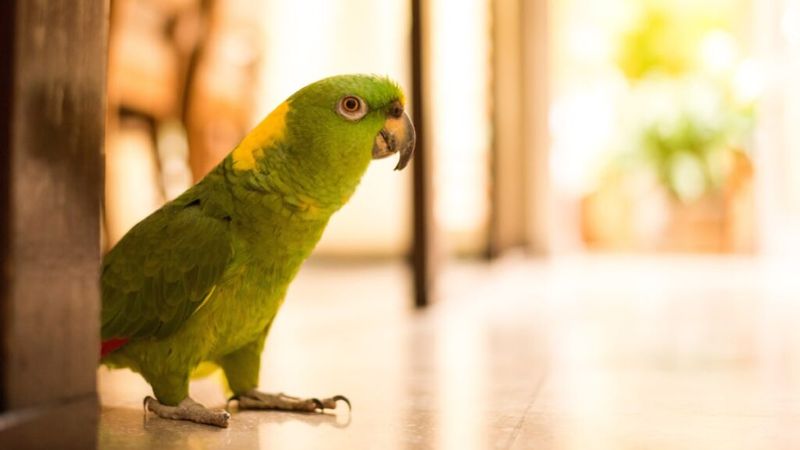
Think all birds are like alarm clocks that never snooze? Not quite. While birds can be vocal, they’re not noisy 24/7. Many enjoy quiet time during the day, especially after play or meals.
Some species, like budgies, are known for their soft chirps rather than loud squawks. Understanding your bird’s natural rhythm helps manage expectations.
It’s all about balance – the soundtrack of a bird’s life includes both noise and peace.
8. Birds Are Not Intelligent
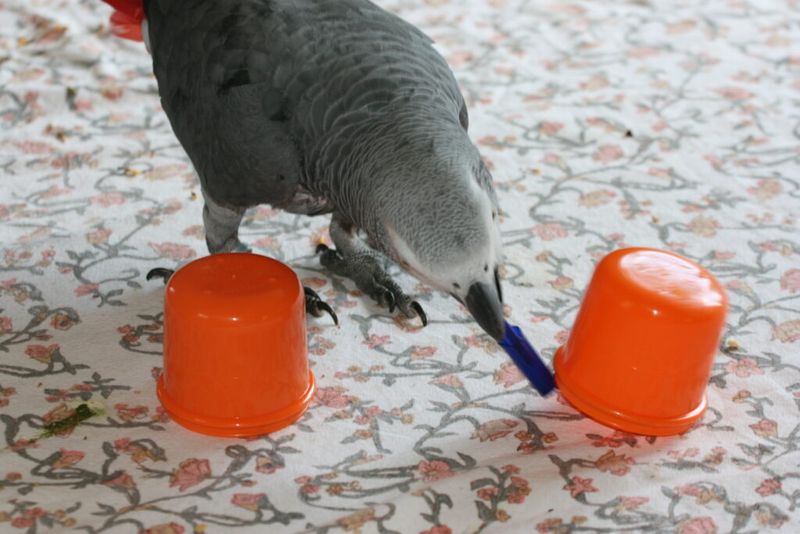
Who says birds have bird brains? In fact, they boast impressive intelligence, rivaling that of young children. African Grey Parrots are known for their problem-solving skills and can even learn to mimic human speech.
These feathered Einsteins use tools, recognize patterns, and understand complex concepts. Their intelligence demands engaging activities to prevent boredom.
Keeping their minds active challenges them and prevents behavioral issues. Birds are more than just pretty feathers – they’re brilliant beings!
9. Birds Can Be Left Alone For Days
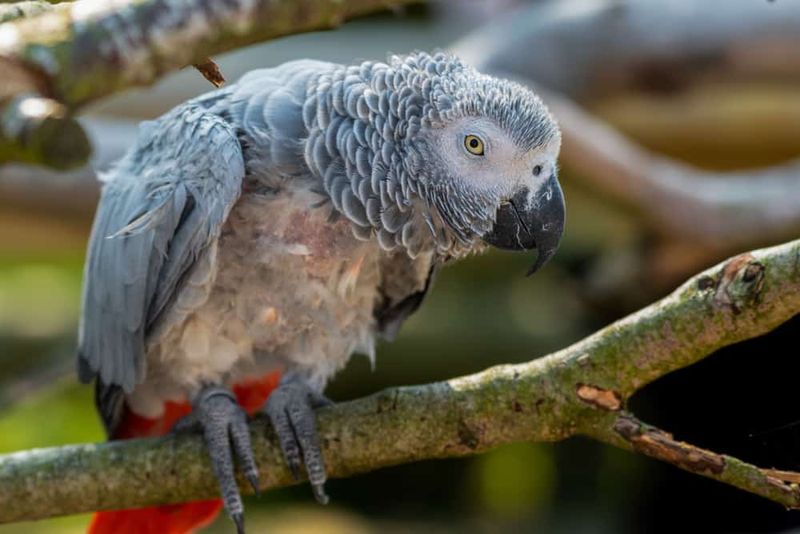
Planning a getaway and think your bird will be just fine alone? Think again! Birds, much like dogs or cats, need daily care and attention. Leaving them unattended can lead to anxiety and health issues.
Without fresh food, water, and interaction, they may become stressed and unwell.
Birds need companionship and a stable environment, so arranging proper care is crucial during your absence. They’re social creatures, not just cage decorations.
10. Birds Don’t Require Vet Visits
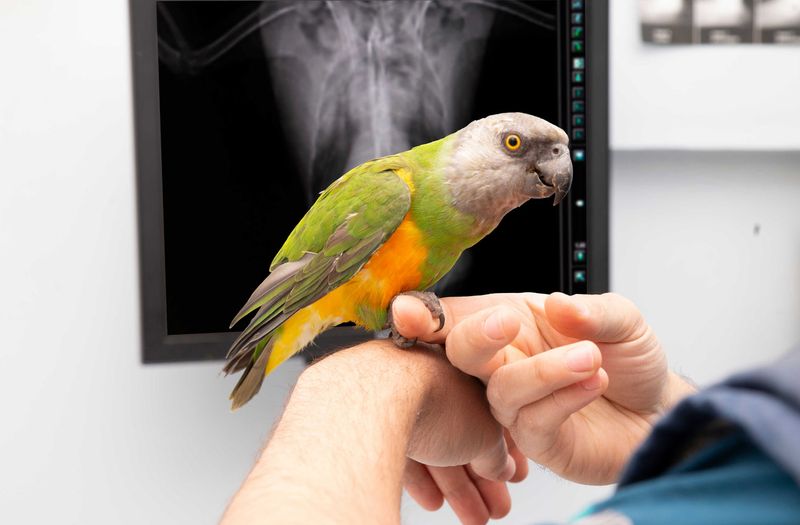
Think skipping vet visits is okay for birds? Not at all! Regular check-ups are essential to catch health problems early. Birds often hide symptoms of illness, so professional insight is valuable.
Preventive care includes vaccinations, nutritional advice, and nail or beak trims. A healthy bird sees the vet regularly to ensure it’s living its best life.
Treat your avian friend like any other pet, and prioritize its health care needs.
11. Birds Don’t Have Personalities
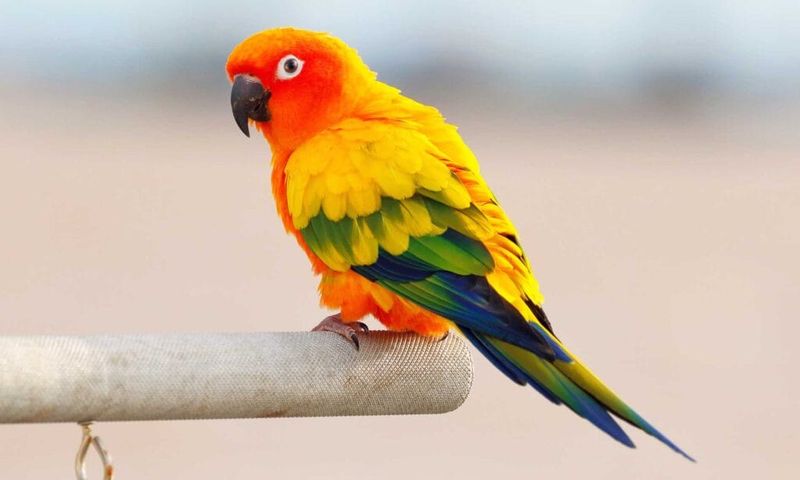
Think all birds are the same? Meet the conure, a playful character with its own unique flair. Birds possess distinct personalities, just like people or dogs.
Some are curious and adventurous, while others may be shy or cautious. Understanding your bird’s behavior helps strengthen your connection.
Embrace their quirks, and enjoy the colorful tapestry of personalities that birds offer. They’re individuals, not just feathered replicas.
12. Birds Only Mimic Sounds
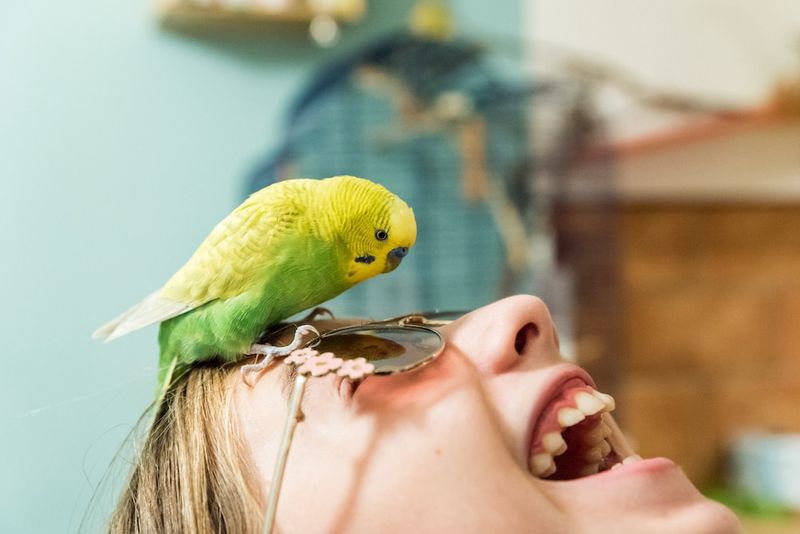
Believe birds are just mimics? They’re more than just sound machines. While parrots can replicate sounds, they also understand context and emotion. Some even develop preferences for certain words or phrases.
Conversations with your feathered friend can be surprisingly meaningful, as they learn to associate words with actions and feelings.
It’s a social skill that goes beyond mimicry, turning interactions into profound exchanges.
13. Birds Are All The Same Size
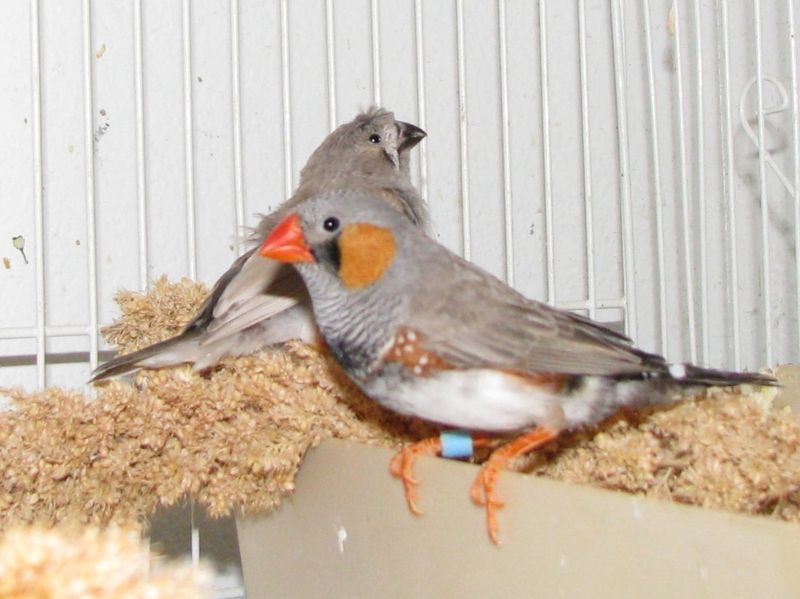
Ever thought all birds fit in the same size category? Imagine a tiny finch next to a mighty macaw—they’re worlds apart. Birds come in a fascinating array of sizes, each requiring different care and environments.
The space, diet, and attention needed can vary greatly between species. Understanding these differences is key to providing the right home and care.
From pint-sized to grand and everything in between, birds offer a delightful diversity.
14. Birds Don’t Form Bonds
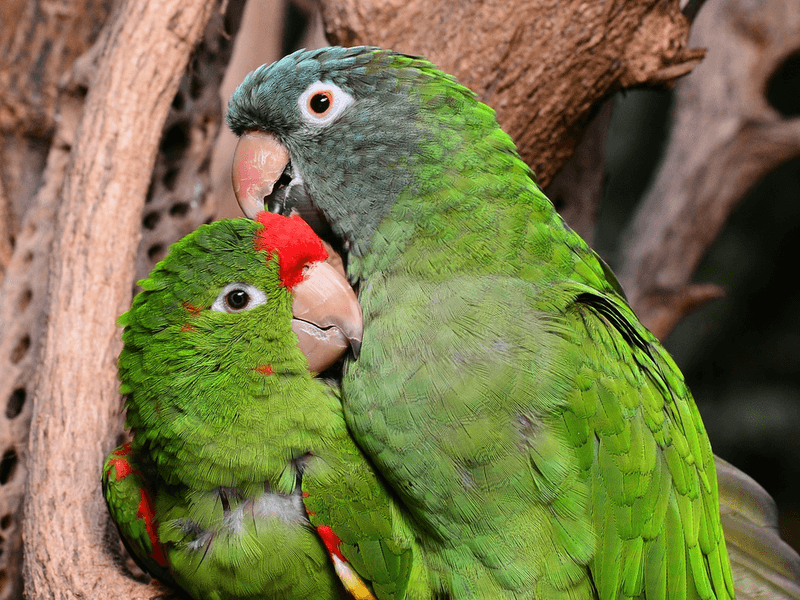
Think birds are aloof and indifferent? Quite the opposite! Birds form strong social bonds with other birds and humans. Parrots, for instance, are known to pair bond, showing affection by grooming or sharing food.
These bonds are crucial for their emotional well-being. Recognizing and nurturing these relationships enhances their quality of life.
Birds aren’t just decorative pets; they’re loving companions with deep emotional connections.
15. Birds Are Dirty Pets
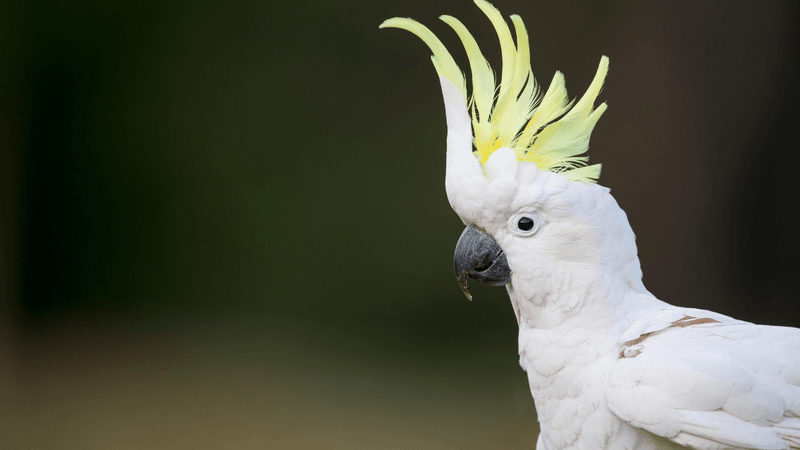
Worried about mess? Birds are actually quite clean. They spend hours preening, ensuring their feathers are in top condition. While they can kick up some debris, regular cage cleaning keeps things tidy.
Proper hygiene includes fresh water for bathing and maintaining a clean living space. Just like any pet, a bird’s cleanliness depends on both its habits and your maintenance.
With the right care, they remain clean companions.
16. Birds Can’t Be Trained
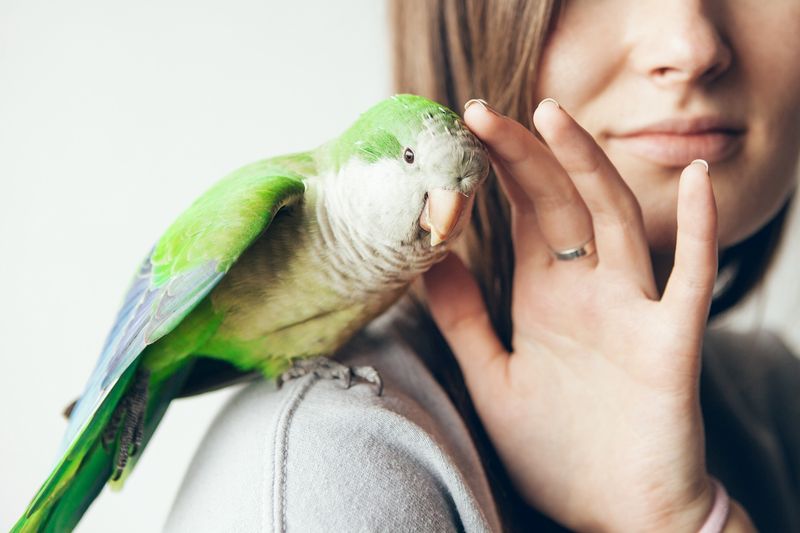
Think training is for dogs only? Birds are trainable too, often mastering tricks and behaviors quickly. Parakeets can learn to perch on command or even perform simple routines.
Training sessions build trust and provide mental stimulation. They challenge a bird’s intellect, preventing boredom and fostering a stronger bond with their human companions.
Positive reinforcement works wonders in shaping a bird’s behavior. Training isn’t just possible; it’s enriching for both parties.
17. Birds Don’t Live Long
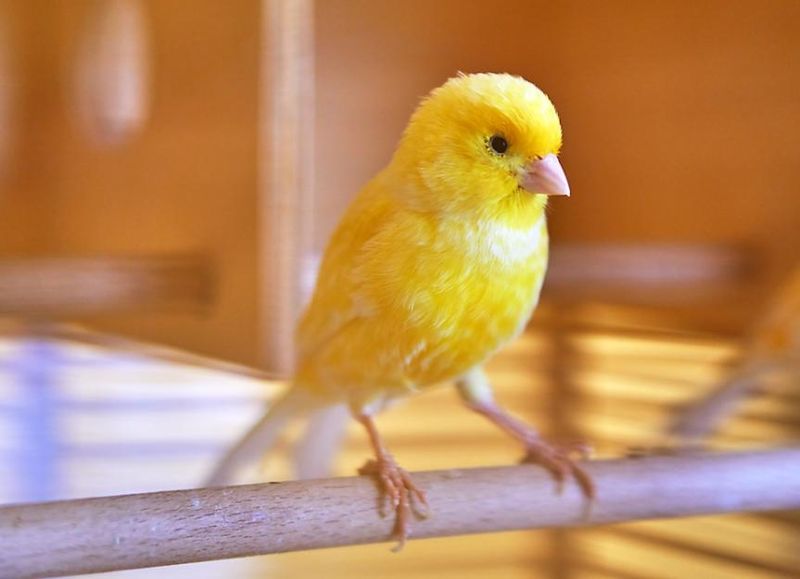
Think a bird’s life is brief? Many species, like canaries, can surprise you with their longevity. With proper care and environment, some birds live for decades.
Their lifespan depends on factors like diet, genetics, and environment. Understanding this helps prepare for a long-term commitment.
Embrace the years of joy and companionship they offer, knowing that with love and care, birds can be lifelong friends.






